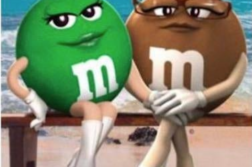COLE PORTER has been considered by many to be the best writer of popular songs in show business history, but his impressive œuvre has been significantly incomplete until now, as the following stories of a number of lost songs demonstrate.
One of Porter’s best and most haunting love songs was originally written for a Carmen Miranda film that was planned but never produced, because Irving Tannenbaum, the head of Universal-Unintentional Studios, was allergic to some mangos used on one of the star’s hats. Porter did a quick rewrite and “I Love Parrots” became a memorable love song to the City of Lights.
In 1946, homesick after one too many cocktail parties in new York and Hollywood, Porter decided to take a nostalgic trip back to Peru, Indiana, but somehow got on the wrong plane and ended up instead in Lima, Peru. He wrote one song while there, “Chi Chi Chichén-Itzá, C’est Chic,” which he later tried to work into a Broadway show, The Avuncular Miss Jones, but the show was never produced and one night Porter put the only copy of the song into a Salvation Army drop box.






